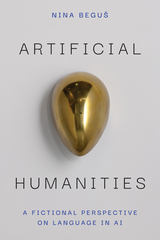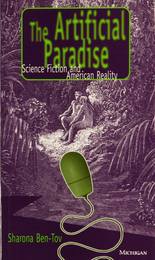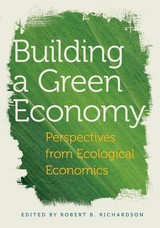
The first decade of the twenty-first century has been characterized by a growing global awareness of the tremendous strains that human economic activity place on natural resources and the environment. As the world’s population increases, so does the demand for energy, food, and other resources, which adds to existing stresses on ecosystems, with potentially disastrous consequences. Humanity is at a crossroads in our pathway to future prosperity, and our next steps will impact our long-term sustainability immensely. In this timely volume, leading ecological economics scholars offer a variety of perspectives on building a green economy. Grounded in a critique of conventional thinking about unrestrained economic expansion and the costs of environmental degradation, this book presents a roadmap for an economy that prioritizes human welfare over consumerism and growth. As the authors represented here demonstrate, the objective of ecological economics is to address contemporary problems and achieve long-term socioeconomic well-being without undermining the capacity of the ecosphere. The volume is organized around three sections: “Perspectives on a Green Economy,” “Historical and Theoretical Perspectives,” and “Applications and Practice.” A rich resource in its own right, Building a Green Economy contains the most innovative thinking in ecological economics at a critical time in the reexamination of the human relationship with the natural world.
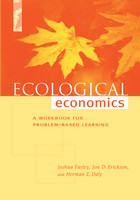
Ecological economics addresses one of the fundamental flaws in conventional economics--its failure to consider biophysical and social reality in its analyses and equations. Ecological Economics: Principles and Applications is an introductory-level textbook that offers a pedagogically complete examination of this dynamic new field.
As a workbook accompanying the text, this volume breaks new ground in applying the principles of ecological economics in a problem- or service-based learning setting. Both the textbook and this workbook are situated within a new interdisciplinary framework that embraces the linkages among economic growth, environmental degradation, and social inequity in an effort to guide policy in a way that respects fundamental human values. The workbook takes the approach a step further in placing ecological economic analysis within a systems perspective, in order to help students identify leverage points by which they can help to affect change. The workbook helps students to develop a practical, operational understanding of the principles and concepts explored in the text through real-world activities, and describes numerous case studies in which students have successfully completed projects.
Ecological Economics: A Workbook for Problem-Based Learning represents an important new resource for undergraduate and graduate environmental studies courses focusing on economics, environmental policy, and environmental problem-solving.
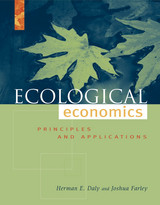
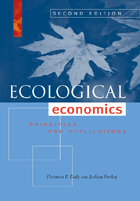
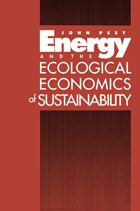
Energy and the Ecological Economics of Sustainability examines the roots of the present environmental crisis in the neoclassical economics upon which modern industrial society is based. The author explains that only when we view ourselves in the larger context of the global ecosystem and accept the physical limits to what is possible can sustainability be achieved.
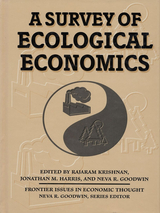
The emergent discipline of ecological economics is based on the idea that the world's economies are a function of the earth's ecosystems -- an idea that radically reverses the world view of neoclassical economics. A Survey of Ecological Economics provides the first overview of this new field, and a comprehensive and systematic survey of its critical literature.
The editors of the volume summarize ninety-five seminal articles, selected through an exhaustive survey, that advance the field of ecological economics and represent the best thinking to date in the area. Each two- to three-page summary is far more comprehensive than a typical abstract, and presents both the topics covered in each paper and the most important arguments made about each topic. Sections cover:
- historical perspective
- definition, scope, and interdisciplinary issues
- theoretical frameworks and techniques
- energy and resource flow analysis
- accounting and evaluation
- North-South/international issues
- ethical/social/institutional issues
A Survey of Ecological Economics is the first volume in the Frontier Issues in Economic Thought series produced by the Global Development And Environment Institute at Tufts University.
READERS
Browse our collection.
PUBLISHERS
See BiblioVault's publisher services.
STUDENT SERVICES
Files for college accessibility offices.
UChicago Accessibility Resources
home | accessibility | search | about | contact us
BiblioVault ® 2001 - 2025
The University of Chicago Press





